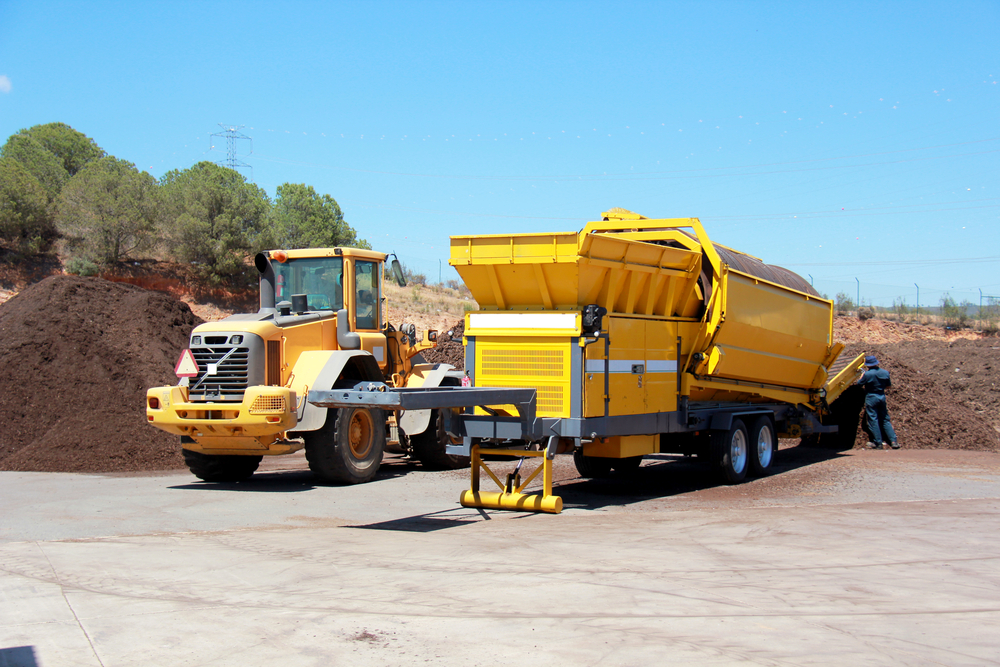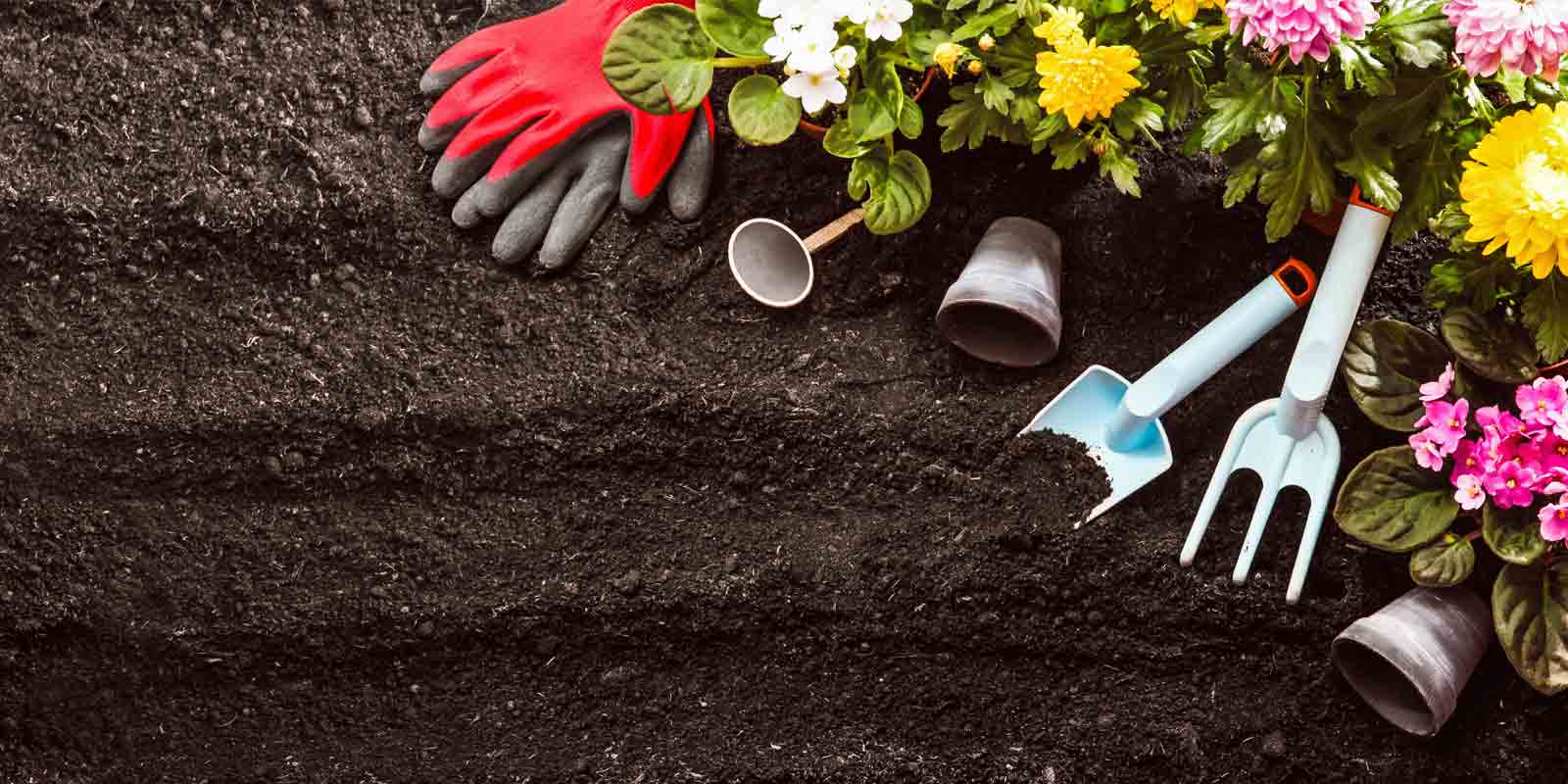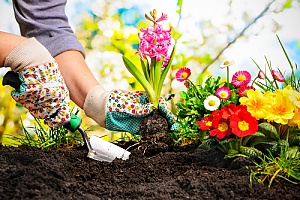All mulches (sometimes called compost) are not created the same. Mulch provides more than aesthetics. Different types, provide different results. Some mulches hold moisture better, while others keep the soil healthy. The kind of mulch you need depends on your objective. Discover, what is mulch and what is it good for, as you read below. I guarantee, you can learn a lot about the benefits of mulch.
Types
There are two basic kinds of mulch: organic and inorganic. Organic mulches include formerly living materials and inorganic mulches are derived from synthetic materials.
Organic
A variety of materials are used as mulch. These materials include trees, grass clippings, leaves, hay, straw, kitchen scraps, shredded bark, whole bark nuggets, sawdust, shells, woodchips, shredded newspaper, cardboard, wool, animal manure, etc..
Inorganic
Plastic sheeting, rocks, rubber chips or non-woven geotextiles are used to make inorganic mulch.
Material Processing
To process material, you must collect your base material. After you have a suitable stockpile you can start processing. The base material will be processed through the shredder/grinder machine. This material breaks the material down into smaller wood fibers. This material will be stockpiled for additional processing. It is at this time, the material is shredded again for improved product quality. At this stage the material is ready for delivery. As a supplier, you want to stockpile mulch to meet customer demand.
Color Application
With the completion of the shredding, you can now add the color. The applied dye is environmentally friendly. The double shredded material is processed through the Trummel screening machine. As your base material enters a coloring system dyes are applied. This occurs with an ultra-concentrated, environmentally safe colorant. The colorant is mixed with water and applied to the wood fibers.
Dyes
Dyes are used to provide coloring. Red dyes are made with iron oxide. Iron oxides are chemical compounds composed or iron and oxygen. Black dyes have carbon, a chemical element. Other dyes are vegetable based to achieve different colors. Vegetable based dyes are organic and harmless to the environment.
Home Installation
- Weed the Beds
- Trim Hedges
- Remove Debris and Old Material
- Edge the Bed Lines
- Apply Material
- Blow/Sweep the Project Area
How to Care
The great news is mulch takes little effort to maintain. Fresh, with it’s earthy smell and fresh appearance, is the hallmark of a well-groomed garden. Rake the beds and break up large clumps. Turn over the compost to make sure it isn’t creating a compressed layer on top of the soil. Rake the area or turn it over with gloved hands. A few times per season will prevent clumping and impede water from reaching the soil. Be sure to add new fresh compost as your existing mulch breaks down. Make sure you have a consistent 2- to 4-inch layer of mulch.
Landscape Benefits
- Appearance
- Moisture Retention
- Weed Control
- Prevention of Soil Erosion
- Maintain or Add Nutrients to the Soil
- Pest Control
- Attracts Earthworms
- Cedar, Cypress, and Pine Wood can help Repel Fleas, Ticks, and Gnats
Do You Have Some Questions?
What Does Mulch Do?
Retain moisture in the soil, suppress weeds and beautify the landscape.
What is Mulch Made Out Of?
Made out of grass clippings, leaves, hay, straw, kitchen scraps comfrey, shredded bark, whole bark nuggets, sawdust, shells, woodchips, shredded newspaper, cardboard, wool, animal manure, etc..
How Do You Make Mulch?
Collect tree branches, bark, trimmings, wood, bark mulch from organic matter from around the yard and process this material through a chipper. You can rent this equipment from Sunbelt Rentals.
Should I Remove Old Mulch?
If the material is looking tired, remove it. Out with the old and in with the new, 3 inches of cover.
What Do You Put Under The Mulch?
Place filter fabric first, this will keep weeds from growing through the bed.
Disadvantage?
Heavy rains can make the ground soggy for several days.
How Long Does It Last?
Bark mulch last seven to ten years and wood chips tend to last about five to seven years. Finer materials will decompose quicker.
Color?
Choosing the right color is up to you. As a reminder all dyes are environmentally friendly. Select the color you like the best.
What Type Last The Longest?
Cypress, melaleuca, and pine bark last the longest.
Can You Put Mulch Over Weeds?
Always remove the weeds.
What Is The Best?
For the garden area, use organic material.
How Do You Maintain?
Turn your existing material and add material when needed.
Do You Throw Away Old Material?
You can, however you can throw it into a compost pile for future rich material.
Do You Mulch Every Year?
Check your material regularly. Brighten up your landscaping with yearly applications.
Don’t Touch The Plants?
Segregate your materials.
Should I Put Plastic Down First?
You can, however filter fabric may is a better option.
Good Or Bad?
Mulch can beautify your home, however it can invite unwanted pests and provide for a fire hazard.
Help Your Garden
Material quality is key, mulch provides nutrients to the soil.
Is Mulch Necessary?
No, however mulch can prevent weed seeds from germinating and growing. Elimination of weeds, allows your plants to thrive and retains water and nutrients which is a plus to most gardens.
Are Stones/Rocks Better?
It depends on your end result. Stone or rock is more expensive and heavier. This makes installation harder. You will need a weed barrier.
Spring or Fall?
Either one will do.
Is Black Mulch Bad?
No, industry approved dyes are environmentally friendly.
How Often?
Keep it fresh and looking good.
What Keeps The Bugs Away?
Cedar and Cypress mulch keep the insects away.
Brown Or Black?
Use the color you like best, make your house a home.
How Do I Choose?
Is Bulk Or Bag Mulch Cheaper?
Bulk is usually cheaper, by a lot.
Should I Use Landscape Fabric?
Yes or no, either way is okay.
Do You Need To Pull Weeds First?
Yes.
Can I Spray Weeds?
Yes, just be sure to use environmentally friendly products.
Does Wood Mulch Attract Termites?
It can, it provides a food source, just be sure to have a pest control service plan.
What Is The Difference Between Mulch & Wood Chips?
Size, mulch is 1 – 3 inches, while wood chips are 3 inches plus in diameter.
Suggested Bed Thickness?
Fine material should be 1 to 2 inches, while coarser material should be 3 to 4 inches deep.
Do You Water Mulch After You Put It Down?
Yes, this can help keep the newly placed material in place.
Will Mulch Burn?
Yes, especially in dry and sunny conditions.
How Long Does It Last?
Mulch can last anywhere from 4-7 years.
Can Plants Grow In Mulch?
Yes, however topsoil and compost provide better results.
Does Vinegar Kill Weeds Permanently?
Yes, vinegar does kill weeds permanently and can be really effective at keeping your flowers and displays weed-free.
What Is The Best Mulch To Put Around Your Home?
Organic material is best around gardens and plantings.
Will Fresh Mulch Kill Plants?
No, two – four inches is the ideal depth for around trees and shrubs.
Main Purpose
Mulch is used to retain moisture in the soil, suppress weeds, keep the soil cool, and make the garden bed look more attractiveThe Best Time To Install?
The Best Time To Install?
Spring and Fall.
What Is The Difference Between Garden Soil & Topsoil?
Garden soil is compost enriched and is a higher quality soil. Topsoil is untreated soil material.
Is Mulching Really Necessary?
No, if you like weeding.
Selecting the Right Mulch for Your Needs
Choosing the right mulch depends on your specific needs and objectives. Organic mulch, such as wood chips or bark, offers benefits like moisture retention and soil health. Inorganic mulch, including plastic sheeting or rocks, provides durability and low maintenance. For best results, consider factors like color preference and mulch longevity. Organic mulch is ideal for gardens due to its nutrient-rich properties, while inorganic options might suit areas with heavy foot traffic. Remember to remove old mulch and apply a fresh layer to maintain its effectiveness.
Summary
Now you know what mulch is, what it’s good for and all you ever need to know. If we can be of any service please let us know, Dirt Connections, Right Here, Right Now.
















































